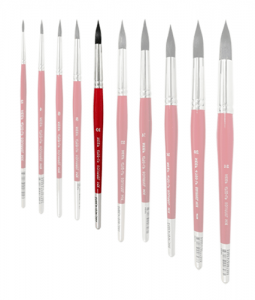Description
Conservation-quality solvent-based non-yellowing acrylic satin finish varnish. Redissolves in turps to strip and clean or to rework.
Matisse MM29 Final Varnish Satin Finish produces a hard, non-yellowing, protective coating with a semi-gloss sheen formulated to match the sheen of Matisse paint films. It is nearly invisible with a low sheen level whilst still remaining clear and free of haze. Unlike water-based varnishes, this varnish is removable or strippable, and can be re-dissolved in mineral turpentine, which has no effect on Matisse acrylic paints: thus a painting may be completely cleaned and re-varnished without affecting the painted surface. MM29 Satin Finish Varnish is an ideal varnish for use in restoration work (may be used on oil paintings).
Directions
A minimum of two coats are recommended for a consistent varnish finish. Drying time is approximately 6-8 hours depending upon weather conditions. This product is also suitable for use over oil paints after they are completely dry (approximately 6-12 months).
This varnish should be stirred thoroughly as it contains a matting agent which will, in storage, tend to settle out and fall to the bottom of the container. It is clear and cannot be easily seen therefore always mix this varnish with a clean stick or mixing spatula before use. Shaking the container is not recommended as bubbles may form that can impact the final finish.
DISCLAIMER: Although Matisse Derivan products are formulated to the highest standards and extensively tested, we strongly recommend a small test be undertaken before any varnish is being applied to the final surface.
Clean Up
It is recommended to clean your brush as soon as you finish the application. Always clean brushes with mineral turpentine first. This will remove most of the traces of varnish from the brush. Finish by using liquid or bar of soap in the palm of your hand and scrub the brush back and forth until you form a lather. Rinse well and let dry flat. Using soap and lukewarm water will condition the brush's hair and prevent it from becoming stiff after drying due to any turpentine (or other solvent) residue left on them.









